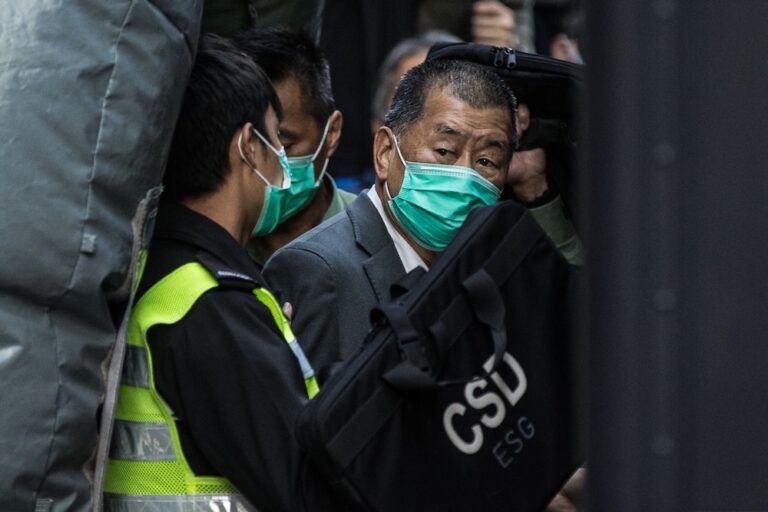On the heels of 4 July 2013, when thousands of Americas gathered in support of restoring the Fourth Amendment of the U.S. Constitution, Privacy International asks where do other countries stand when it comes to privacy protections.
All across the U.S. on 4 July 2013, thousands of Americans gathered at Restore the Fourth rallies, in support of restoring the Fourth Amendment of the U.S. Constitution and to protest the recently-disclosed information regarding NSA spying on American citizens. Demonstrations took place in over 100 cities, calling on the U.S. government to respect the privacy rights of citizens in America and individuals around the world.
With all this talk of constitutional protections to against unreasonable searches and seizures, we started to think about explicit constitutional rights to privacy. Where do other countries stand compared to the U.S. when it comes to privacy protections?
That’s why we’re releasing a small portion of one of our upcoming projects, the Global Surveillance Monitor. GSM is a first-of-its-kind, comprehensive resource that aims to provide an open and current data set on all laws governing the surveillance and privacy of individuals worldwide.
Below is a snapshot from GSM, outlining some the constitutional privacy protections granted in various countries (selected at random) around the world.
Chile
Article 19-5
Inviolability of homes and all forms of private communication. Homes may be searched and private communications and documents intercepted, opened or inspected only in the case and in the manner prescribed for by law;
Article 19-4
Respect for and protection of private and public life and the honor of the individual and his family.
Violation of this precept, committed through a mass medium, whereby a false deed or action is imputed unjustifiably causing harm or discredit to an individual or his family, shall constitute a crime and shall be punished as determined by law. However, the mass medium may claim exception by proving, before the corresponding court, the truth of the imputation, unless it should constitute in itself a libel against private individuals. Furthermore, the proprietors, editors, directors and administrators of the respective mass medium shall be jointly responsible for the appropriate indemnifications.
China
Article 39
The residences of citizens of the People’s Republic of China are inviolable. Unlawful search of, or intrusion into, a citizen’s residence is prohibited.
Article 40
The freedom and privacy of correspondence of citizens of the People’s Republic of China are protected by law. No organization or individual may, on any ground, infringe upon the freedom and privacy of citizens’ correspondence except in cases where, to meet the needs of state security or of investigation into criminal offences, public security or procuratorial organs are permitted to censor correspondence in accordance with procedures prescribed by law.
Cuba
Article 56
The home is inviolable. Nobody can enter the home of another against his will, except in those cases foreseen by law.
Article 57
Mail is inviolable. It can only be seized, opened and examined in cases prescribed by law. Secrecy is maintained on matters other than those which led to the examination.
The same principle is to be applied in the case of cable, telegraph and telephone communication.
Finland
Article 10
Everyone’s private life, honour and the sanctity of the home are guaranteed. More detailed provisions on the protection of personal data are laid down by an Act.
The secrecy of correspondence, telephony and other confidential communications is inviolable.
Measures encroaching on the sanctity of the home, and which are necessary for the purpose of guaranteeing basic rights and liberties or for the investigation of crime, may be laid down by an Act. In addition, provisions concerning limitations of the secrecy of communications which are necessary in the investigation of crimes that jeopardise the security of the individual or society or the sanctity of the home, at trials and security checks, as well as during the deprivation of liberty may be laid down by an Act.
Germany
Article 13
(1) The home is inviolable.
(2) Searches may be authorised only by a judge or, when time is of the essence, by other authorities designated by the laws, and may be carried out only in the manner therein prescribed.
(3) If particular facts justify the suspicion that any person has committed an especially serious crime specifically defined by a law, technical means of acoustical surveillance of any home in which the suspect is supposedly staying may be employed pursuant to judicial order for the purpose of prosecuting the offence, provided that alternative methods of investigating the matter would be disproportionately difficult or unproductive. The authorisation shall be for a lim- ited time. The order shall be issued by a panel composed of three judges. When time is of the essence, it may also be issued by a single judge.
(4) To avert acute dangers to public safety, especially dangers to life or to the public, technical means of surveillance of the home may be employed only pursuant to judicial order. When time is of the essence, such measures may also be ordered by other authorities designated by a law; a judicial decision shall subsequently be obtained without delay.
(5) If technical means are contemplated solely for the protection of persons officially deployed in a home, the measure may be ordered by an authority designated by a law. The information thereby obtained may be otherwise used only for purposes of criminal prosecution or to avert danger and only if the legality of the measure has been previously determined by a judge; when time is of the essence, a judicial decision shall subsequently be obtained without delay.
(6) The Federal Government shall report to the Bundestag annually as to the employment of technical means pursuant to paragraph (3) and, within the jurisdiction of the Federation, pursuant to paragraph (4) and, insofar as judicial approval is required, pursuant to paragraph (5) of this Article. A panel elected by the Bundestag shall exercise parliamentary oversight on the basis of this report. A comparable parliamentary oversight shall be afforded by the Lander.
(7) Interferences and restrictions shall otherwise only be permissible to avert a danger to the public or to the life of an individual, or, pursuant to a law, to confront an acute danger to public safety and order, in particular to relieve a housing shortage, to combat the danger of an epidemic, or to protect young persons at risk.
Article 10
(1) The privacy of correspondence, posts and telecommunications shall be inviolable.
(2) Restrictions may be ordered only pursuant to a law. If the restriction serves to protect the free democratic basic order or the existence or security of the Federation or of a Land, the law may provide that the person affected shall not be informed of the restriction and that recourse to the courts shall be replaced by a review of the case by agencies and auxiliary agencies appointed by the legislature.
Ghana
Article 18
(1) Every person has the right to own property either alone or in association with others.
(2) No person shall be subjected to interference with the privacy of his home, property, correspondence or communication except in accordance with law and as may be necessary in a free and democratic society for public safety or the economic well-being of the country, for the protection of health or morals, for the prevention of disorder or crime or for the protection of the rights or freedoms of others.
Morocco
Article 24
Any person has the right to the protection of their private life.
The domicile is inviolable. Searches may only intervene in the conditions and the forms provided by the law.
Private communications, under whatever form that may be, are secret. Only justice can authorize, under the conditions and following the forms provided by the law, the access to their content, their total or partial divulgation or their summons [invocation] at the demand [charge] of whosoever.
The freedom to circulate and to establish oneself on the national territory, to leave it and to return, in accordance with the law[,] is guaranteed to all.
Philippines
Article III.3
(1) The privacy of communication and correspondence shall be inviolable except upon lawful order of the court, or when public safety or order requires otherwise, as prescribed by law.
(2) Any evidence obtained in violation of this or the preceding section shall be inadmissible for any purpose in any proceeding.
Article II.2
The right of the people to be secure in their persons, houses, papers, and effects against unreasonable searches and seizures of whatever nature and for any purpose shall be inviolable, and no search warrant or warrant of arrest shall issue except upon probable cause to be determined personally by the judge after examination under oath or affirmation of the complainant and the witnesses he may produce, and particularly describing the place to be searched and the persons or things to be seized.
Slovakia
Article 22
(1) Secrecy of letters, other communications and written messages delivered by post and of personal data shall be guaranteed.
(2) No one shall violate the secrecy of letters, neither the secrecy of other communications and written messages kept private or delivered by post or otherwise; save in cases laid down by a law. The same applies to communications delivered over telephone, telegraph or other similar equipment.
Article 21
(1)The home shall be inviolable. Entrance without consent of the person residing therein is not permitted.
(2) A search shall be allowed only in connection with criminal proceedings and only upon a reasoned written order issued by a judge. A law shall lay down the manner of execution of such search.
(3) Other infringements of the inviolability of the home shall be legally justified only if it is necessary in a democratic society to protect life, health, or property, to protect rights and freedoms of others, or to avert a serious threat to public order. If the home is used for entrepreneuring or other economic activities, such infringements may be allowed by the law also for the purposes of fulfilling the tasks of public administration.
Article 19
(1) Everyone shall have the right to maintain and protect his or her dignity, honour, reputation and good name.
(2) Everyone shall have the right to be free from unjustified interference in his or her private and family life.
(3) Everyone shall have the right to be protected against unjustified collection, disclosure and other misuse of his or her personal data.
South Africa
Article 14
Everyone has the right to privacy, which includes the right not to have-
(a) their person or home searched;
(b) their property searched;
(c) their possessions seized; or
(d) the privacy of their communications infringed.
Venezuela
Article 47
A person’s home and any private premise are inviolable. They may not be forcibly entered except by court order, to prevent the commission of a crime or carry out the decisions handed down by the courts in accordance with law, respecting human dignity in all cases. Any health inspections carried out in accordance with law shall be performed only after notice from the officials ordering or carrying it out.
Article 48
The secrecy and inviolability of private communications in all forms are guaranteed. The same may not be interfered with except by order of a competent court, with observance of applicable provisions of law and preserving the secrecy of the private issues unrelated to the pertinent proceedings.”


